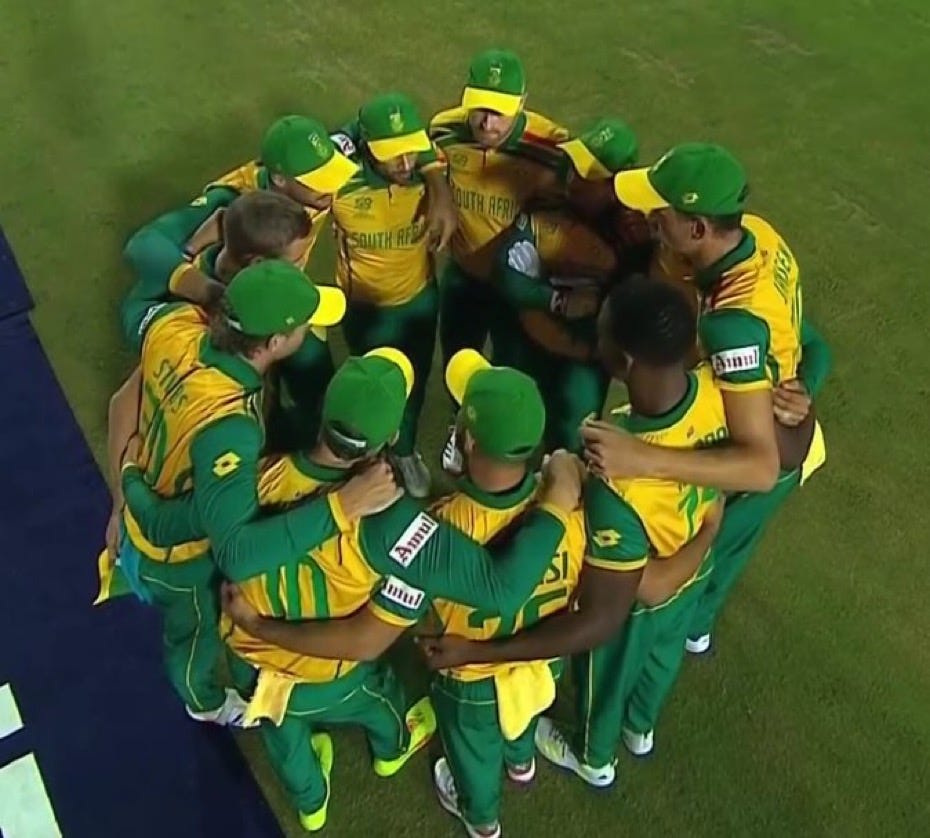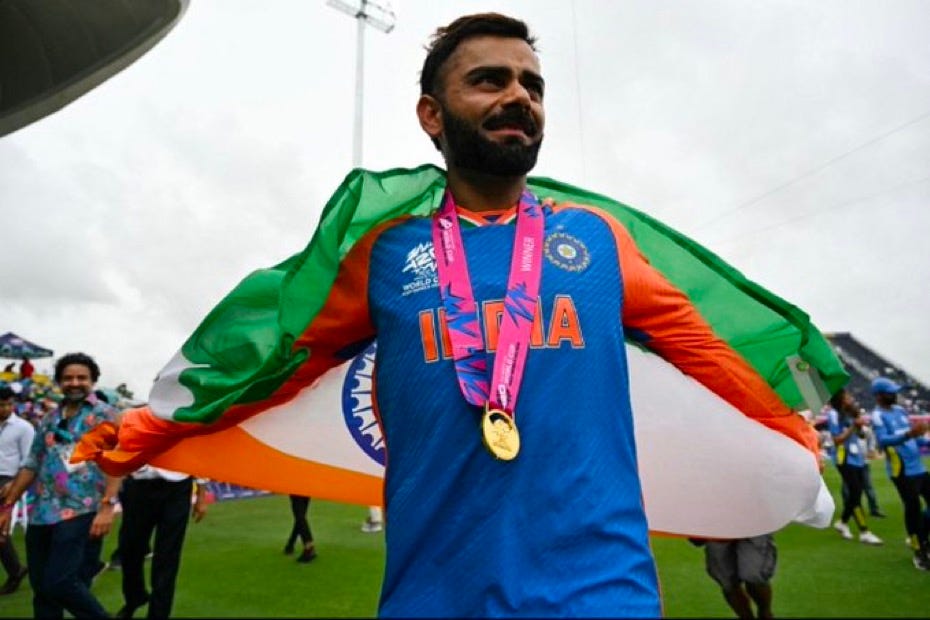It’s time to get over the ‘choke’ thing. It is not unique to the South African cricket team, although they have become associated with the phenomenon more than many other sporting teams. It is something which teams routinely attempt to inflict on their opponents, and they all fall to it.
There is a significant difference between choking under the weight of an occasion, when the opportunity of victory and the ensuing glory becomes overwhelming, and doing so when an opponent slightly bigger and marginally stronger, has their hands around your throat and is refusing to relent.
The emphasis in South Africa after the Proteas’ heart-breaking loss by seven runs to India in Barbados on Saturday was on the batting team’s inability to score 30 runs from the final 30 balls with six wickets in hand and two of the world’s best at the crease in Heinrich Klaasen and David Miller.
The chances of failure from such a situation are rare but enhanced when the fielding team can alter the flow and change the narrative of the match.
Klaasen timed his moment to perfection and delivered what appeared to be a chillingly clinical blow to India’s chances with his brutal ‘take-down’ of Axar Patel in the 15th over when two enormous sixes contributed to 24 runs which brought the target down to 30 from the final five overs.
India had two aces up their sleeve – two overs from the best bowler in the world, Jasprit Bumrah. To enhance their effectiveness and halt South Africa’s momentum, make the batsmen sweat a bit more, they needed a break. Which is when the ever-canny wicket-keeper, Rishabh Pant, called for some treatment from the physio. A bit of knee-strapping.
Captain Rohit Sharma summoned a huddle and delivered a calm but furiously determined talk. He reminded his players that South Africa could not bat below number seven, that as much as the scoreboard suggested they were losing, just one more wicket would bring them straight back into contention.
Klaasen’s fire was doused, he chased an innocuous, wide delivery from Hardik Pandya and edged behind. In most teams that would have been a major inconvenience but not a potential disaster. But South Africa’s extreme lack of batting ability in the lower order is different to other international teams.
As comforting as it may have looked to see Miller talking to and reassuring Marco Jansen and Keshav Maharaj so often, it also illustrated the concern that the top six batsmen had about the ability of the tailenders in a tight situation. It was an older brother reassuring his nervous younger sibling before his first day at high school.
It is impossible to over-state the effect that four non-batsmen has on a team. With numbers eight, nine and even ten who could be relied upon to make clean contact with at least a couple of deliveries out of four or five, the confidence amongst the remaining batsmen would have allowed them to seek the required, match-winning boundaries. Miller’s role as the designated ‘finisher’, as brilliant as he is at it, was compromised by his secondary role as baby-sitter.
Aiden Markram made a fascinating comment after the nail-biting conclusion to the match against the West Indies, in which the obvious concerns about the tailenders almost cost them the game: “It is better to be fully committed to a bad plan than uncommitted to a good plan,” he said.
It may not have made sense to many outside the inner circles of professional cricket, but it certainly did to those within it. There is nothing worse than ‘hoping for the best’ in the biggest moments of the game. An idea of how to achieve your goal is a great comfort to most players – only the geniuses rely on their instincts these days.
And the ‘plan’ was always for the tailenders to ‘stay calm’ in close finishes, to take singles and leave it for the remaining specialist batsman to take responsibility for the result. Wait for the ‘opportunity’. Take a single. There will always be one. They stuck to it.
But they couldn’t lay a bat on the ball and there weren’t any bad ball opportunities. Suddenly, it was 20 from 12 balls. Stay calm. Don’t panic. Chances will come. But they didn’t. These games are decided in ‘moments’, but South Africa’s had run out. Bumrah was extraordinary, but the less heralded Arshdeep Singh no less so.
It was medicine with which the Proteas were familiar, not just because they have tasted it in previous tournaments but because they dispensed it earlier in the tournament, first to Bangladesh who had needed just 20 runs from the final 18 balls and then to lowly Nepal who had actually needed less than a run-a-ball with eight wickets in hand for an historic upset chasing just 115.
Having strangled the life out of those run-chases against lesser opposition, having “somehow found a way to win,” Aiden Markram’s team, in time, will acknowledge that India did the same to them. As painful as that will be, and will always be.
Spare a thought for Klaasen, by the way. Nobody will be harder on him than himself. So often the player with the best innings bares the greatest responsibility in a close, failed run chase. It was his fourth loss in a final this year.






Thank you Manners, point well made. Jansen will hopefully come good but for now& even in test matches at no 7 is a spot too high.
It is all very well talking about keeping the tail-enders calm, etc, but it should not have come to that. The disappointment lay in the decision by Stubbs to go for an outrageous shot when he was doing perfectly well with conventional application (De Kock's expression told the story); in Klaasen, having produced one of the greatest innings, to go for a wide delivery (having previously left similar balls), and then in Millar allowing Maharaj to take the single which kept him on strike. Note how India were content to take singles, waiting for one bad delivery, putting pressure on the bowlers to keep bowling perfectly. Knowing they had a weak tail, Klaasen and Miller, with their vast experience, simply had to manage the game.